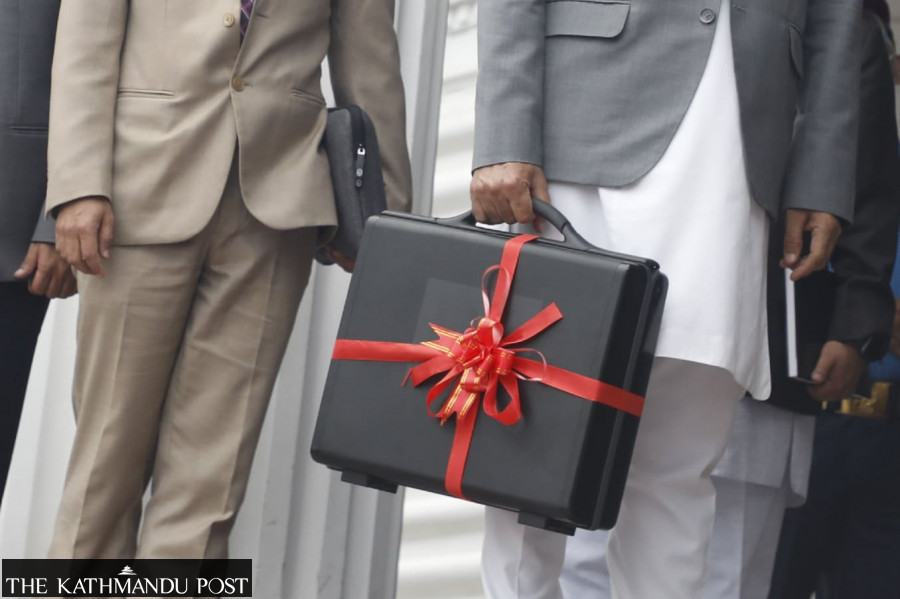Editorial
An eye on the elections
It is customary to bring a large budget and then dial down the allocations over the year.
On Sunday, the coalition government presented a Rs1.79 trillion budget in Parliament for the fiscal year 2022-23. But there is little in the government's annual financial plan to alleviate the problems of the people. Rather than addressing the core issues revolving around inflation, job creation and increase in productivity, it is clear from what has been presented in Parliament that the focus lay on appeasement politics with an eye on the coming general elections. It’s one thing to roll out promising schemes, but Nepal’s administrators have always lacked the ability or the intent to implement what they promise. And there is nothing to guarantee that the same policymakers will address the prevalent issues differently.
The price of everyday commodities has rocketed over the past few months. While official data gave last month’s inflation rate as 7.28 percent, it is inconceivable for the ordinary person to relate the actual increase in prices of commodities to the figures given by the government. And with a bloated budget, the government’s intention to increase the supply of money in the market through various schemes and projects contradicts its plan to tackle inflation. However, it is a well-known fact that successive governments customarily bring a large budget to ride the populism wave, and then dial down the allocations over the year after failing to spend the funds.
For example, in September 2021, Finance Minister Janardan Sharma presented a Rs1.63 trillion budget for the ongoing fiscal year 2021-22 ending mid-July, which was subsequently revised down to Rs1.54 trillion in February 2022, and further reduced to Rs1.44 trillion. Going by the government’s past actions, there is nothing to suggest that the budget presented for the fiscal year 2022-23 will not suffer a similar fate for no other reason than the fact that Nepal lacks the revenue sources to support such a large claim.
Amid all this, a whole host of schemes have been promised, from lowering the age for the elderly allowance to increasing salaries of government employees, exempting loans taken by farmers and many well-intended measures for people in need of medical services. Measures that aim to uplift people’s lives should indeed be welcomed, but the public is well aware of unfulfilled promises. And despite this, the authorities are burdening us further with different promises without actually fulfilling those made during the pandemic.
The wanton way our politicians have handled the country’s economy and the mismanagement prevalent in all sectors have finally caught up to serve a resounding blow. While the government is seen taking steps to curb imports and increase productivity, the measures do not show any prospect of balancing out. Amid all the chaos, people have no other recourse but to grit their teeth and bite the bullet. Promises will continue to rain, but they are of little worth if they fail to change the reality of the people on the ground.




 10.12°C Kathmandu
10.12°C Kathmandu













